News
Trump’s Pick for Labor Secretary Won’t Neutralize the Damage His Administration Will Inflict on Workers
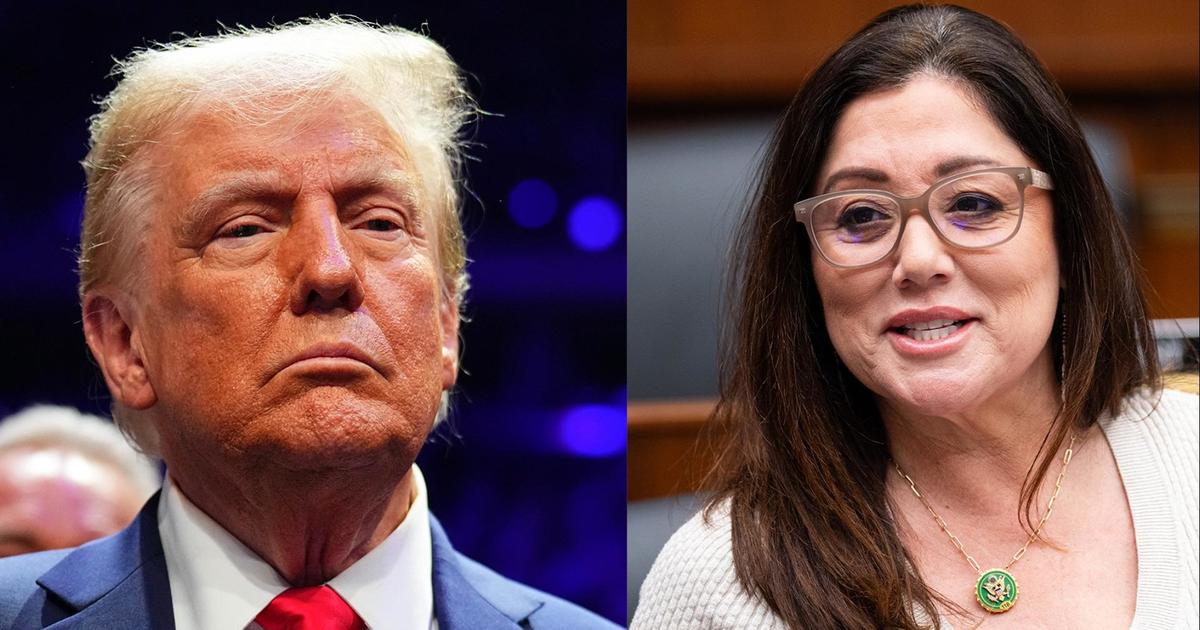
Lori Chavez-DeRemer is as good a pick for labor secretary as one could’ve reasonably hoped for. It’s also, unfortunately, smart politics for Trump.
For three weeks, I have torn my hair out as Trump nominated one ill-qualified and/or maleficent nominee after the next. But one of the nominations stands out for its relative good sense: Lori Chavez-DeRemer, erstwhile GOP representative from Oregon and daughter of a Teamsters member, for labor secretary.
Chavez-DeRemer, who narrowly lost her reelection bid in a swing district in which it pays to be seen as being in favor of union rights, is one of only a few Republican members of the outgoing Congress to have supported labor over big business and to have positioned herself as pro-union. In her reelection campaign, she was backed by more unions than her Democratic opponent, Janelle Bynum. Given these stances, her nomination to a cabinet stacked full of anti-labor billionaires and hewing largely to Project 2025’s cartoonishly regressive policy stances is an odd fit.
Unions have praised the nomination, with particularly strong words of support coming from the Teamsters, the leadership of which made nice with Trump in the run-up to the election. The AFL-CIO released a statement touting the nominee’s record. Stalwart progressives in Congress such as Senator Elizabeth Warren have also expressed support.
Current Issue
December 2024 Issue
Meanwhile, conservatives have raised eyebrows at the prospect of a GOP labor secretary who isn’t reliably sympathetic to right-to-work laws; supported the PRO Act, which was intended to make union organizing efforts easier; and seems to favor an increase in the minimum wage. National Review’s editors argued that the nomination made “no sense.” The Washington Examiner panned the choice. The right-leaning Coalition for a Democratic Workplace expressed its alarm. And several GOP senators have suggested that she might have an uphill battle securing confirmation.
What is going on here? Why would a man like Trump—who has built a fortune, in part, from stiffing workers; who boasts about shortchanging contractors; whose previous administration, with the strong backing of his three labor secretaries, rolled back overtime protections for workers; and who made small talk with Elon Musk about firing striking employees—nominate a pro-union figure to be his labor secretary?
The answer lies in the numbers. This past November, Trump received somewhere in the region of 45 percent of the votes of people living in union households. Well over 50 percent of Trump’s voters were blue-collar or service workers; for Harris, the equivalent number was slightly over 40 percent. Moreover, in heavily unionized West Coast cities, Democratic turnout plummeted. In Oregon’s Multnomah County, consisting of Portland and the surrounding region, for instance, the Democratic vote dropped by nearly 16 percent.
That depressed Democratic turnout was also true in the suburban areas around Los Angeles, San Francisco, Portland, and Seattle. And while it didn’t stop Harris from handily winning the Electoral College votes of California, Oregon, and Washington, it did provide a glimpse of a possible future in which Democratic control over these three states is no longer as guaranteed as it has been in recent decades.
Inland, it was also true in the union strongholds of Las Vegas and Phoenix, both of which saw lower Democratic numbers in 2024 than in 2020—and both of which, in consequence, helped doom Harris’s chances in the swing states of Nevada and Arizona.
All of this gives Trump an improbable opening, one that speaks to the scale of his ambition to remake the American political landscape not just for four years but for election cycles to come.
Trump, of course, isn’t genuinely pro-worker or pro-union. To suggest otherwise is to willfully ignore his dismal track record on labor policies and his predilection for surrounding himself with apostles of corporate greed. But, despite these realities, he has successfully carved out a perception of himself as a benefactor to, and protector of the values of, Blue Collar America, and this leaves the door ajar to a future in which Trump could create a Juan Perón–styled strongman regime backed by a few favored unions (high up on the list, the Teamsters) and their leadership.
This makes Chavez-DeRemer’s nomination smart politics. It provides an opportunity to chip away at the Democratic base in super-blue, union-heavy states up and down the West Coast, as well as in the swing states of Nevada and Arizona. And it provides an easy political sop to Teamsters president Sean O’Brien, who spoke at the GOP convention this summer, has dined with Trump at Mar-a-Lago, and who, in the weeks after the election, reportedly lobbied for Chavez-DeRemer to be the next labor secretary.
It’s also relatively low-hanging fruit, allowing Trump to appear pro-labor without actually shifting his policy agenda in a pro-union direction. As Dan La Bolz recently wrote in Counterpunch, having a mildly pro-labor labor secretary won’t neutralize the damage done by having a voraciously anti-union National Labor Relations Board as well as a raft of appointees hewing to Project 2025’s efforts to roll back overtime pay, workplace safety standards, and access to benefits such as healthcare and nutritional assistance programs.
Chavez-DeRemer is an unexpected choice, and her nomination is arguably a ray of sunshine in an otherwise bleak political landscape. But it would be foolish to get too giddy about what this nomination implies. Trump hasn’t had a come-to-Jesus moment on labor issues. Rather, he and his team, opportunists to the core, have concluded that there is hay to be made from playing nice with the Teamsters and elevating their choice candidate to be the next labor secretary.
News
Trump Nominates Conservative Lawyer Harmeet Dhillon To Lead DOJ Civil Rights Division
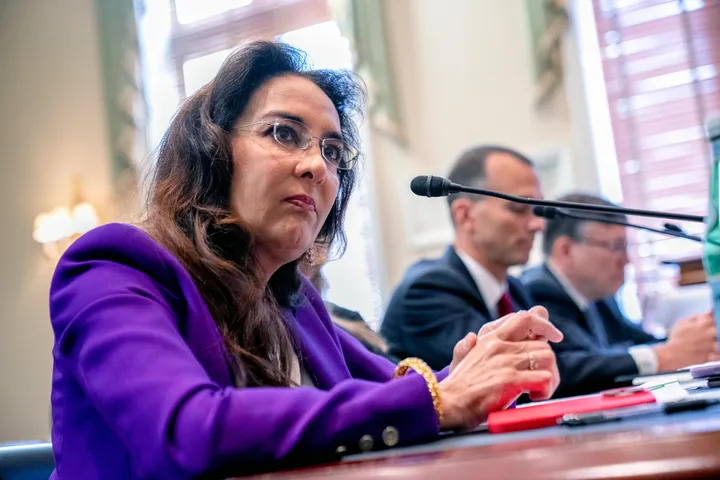
Harmeet Dhillon was chosen by the president-elect to replace Kristen Clarke on the Justice Department’s civil rights efforts.
President-elect Donald Trump announced on Monday that he plans to nominate a conservative California attorney to lead a critical division of the Department of Justice.
Harmeet Dhillon, a former vice chairwoman of the California GOP and a national committeewoman for the Republican National Committee, was selected by Trump to serve as assistant attorney general for civil rights at the Justice Department. She would replace Kristen Clarke, who became the first woman and first Black woman to run the division in 2021.
Trump, who described Dhillon as one of the “top Election lawyers” in the country in his Truth Social announcement, said that she would have a large role in voting rights enforcement.
“Throughout her career, Harmeet has stood up consistently to protect our cherished Civil Liberties, including taking on Big Tech for censoring our Free Speech, representing Christians who were prevented from praying together during COVID, and suing corporations who use woke policies to discriminate against their workers,” he wrote.
Dhillon combated stay-at-home orders during the COVID-19 pandemic. She filed several lawsuits against government-level regulations, arguing there was overreach. The lawsuits Dhillon filed came after Democratic California Gov. Gavin Newsom became the first governor to issue statewide stay-at-home orders to shut down nonessential activities and interests to combat the spread of the coronavirus.
In 2018, Dhillon founded the conservative nonprofit The Center for American Liberty, which has filed lawsuits challenging vaccine requirements and trans-inclusive school policies. Most notably, Dhillon currently represents Chloe Cole, a young activist who sued Kaiser Permanente in California after she detransitioned from male to female. Cole has rallied alongside Republican politicians and conservative media figures, and has testified in support of dozens of state laws restricting access to gender-affirming care for trans youth.
Dhillon is highly critical of blue states that aim to uphold and protect rights for transgender people in light of ongoing legislative attacks. She said Maine’s “shield” law, which protects reproductive health care providers and trans people, is “unconstitutional” and expressed concerns about future protections in California.
A staunch opponent of abortion herself, the attorney also unsuccessfully represented anti-abortion activist David Daleiden, who in 2016 used a fake driver’s license to pose as a biomedical company executive and tried to buy fetal tissue from Planned Parenthood, in an effort to accuse the health care provider of selling tissue for profit.
Dhillon, who was born in India and is a practicing Sikh, has faced pushback from fellow Republicans due to questions of her faith. After she announced in 2022 that she would challenge RNC Chair Ronna McDaniel for her position, several members of the RNC circulated a video of Dhillon opening a 2016 Republican National Convention with a Sikh prayer. In a letter to Alabama Republicans in 2023 responding to the incident, Dhillon addressed concerns about her faith and slammed McDaniel’s leadership. Alabama Republican Chris Horn questioned how Dhillon’s religion would impact policy to NBC. McDaniel condemned attacks on religion but told Politico her allies questioned how Dhillon’s faith would impact the party.
Last year, former Fox News host and conservative political commentator Tucker Carlson hired Dhillon to represent him in a gender discrimination lawsuit by his former producer, Abby Grossberg. The ensuing settlement resulted in Fox paying Grossberg $12 million.
“I’m extremely honored by President Trump’s nomination to assist with our nation’s civil rights agenda,” Dhillon said in a post on X (formerly known as Twitter). “It has been my dream to be able to serve our great country, and I am so excited to be part of an incredible team of lawyers led by @PamBondi. I cannot wait to get to work!”
News
Trump’s Utterly Absurd Take On Birthright Citizenship Involves Walking Infants
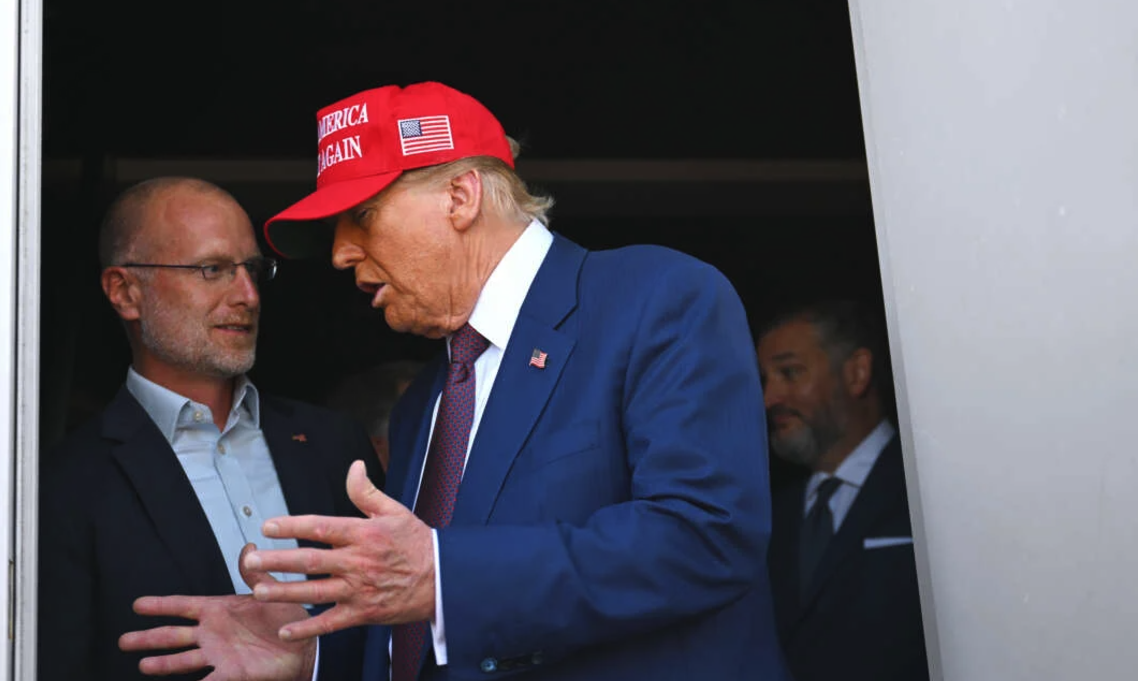
The president-elect appeared very confused about how American citizenship is conferred.
In a freewheeling interview with NBC News Sunday, President-elect Donald Trump offered a head-scratching explanation for his plan to wage an attack on birthright citizenship.
“Did you know, if somebody sets a foot — just a foot, one foot, you don’t need two — on our land, congratulations, you are now a citizen of the United States of America,” Trump said, when discussing birthright citizenship.
“Yes, we’re going to end that, because it’s ridiculous,” he added.
Trump appeared to describe a hypothetical scenario in which a woman would give birth to an infant who — either capable of walking at birth or helped along by someone eager to win a bet — would set one foot on American soil and the other in either Mexico or Canada.
It is also possible Trump was imagining an infant hopping or standing on one leg. Neither scenario is plausible.
Trump also repeatedly asked whether the interviewer, Kristen Welker of “Meet the Press,” knew that the United States was the only country that conferred citizenship by birthright.
“We’re the only country that has it, you know,” Trump said. “You know we’re the only country that has it.”
Birthright citizenship is commonly recognized in the Americas, including in Canada and Mexico. Also known by its Latin legal term as “jus soli,” it is the concept of conferring citizenship by birth in a given country. Most countries instead recognize “jus sanguinis,” which instead confers citizenship based on the nationality of a person’s parents.
Welker did not challenge Trump’s utterly wrong description of how birthright citizenship works or that the United States is not alone in recognizing it. But she asked whether Trump intended to enact his proposed change through executive action.
“Well, if we can, through executive action,” Trump said. “I was going to do it through executive action, but then we had to fix COVID first, to be honest with you.”
Birthright citizenship is protected by the 14th Amendment to the Constitution. The president cannot use executive action to overturn a constitutional amendment, though legal experts expect the Trump administration to challenge the long-settled legal interpretation through the courts.
Trump has spent significant time in southern Florida, which is home to a large Cuban-American community.
He likely came up with this weird description of birthright citizenship by free-associating the issue with the now-defunct policy of allowing Cuban migrants to stay within the United States and pursue citizenship upon touching American soil. The policy was known as “wet-foot, dry-foot.”
During this year’s presidential campaign, Trump repeatedly described immigrants as coming from jails and mental institutions. He was likely resurrecting assertions he heard during the era of the Mariel boatlift four decades ago.
News
Trump Trolls Canadian Prime Minister Justin Trudeau, Stirs Controversy
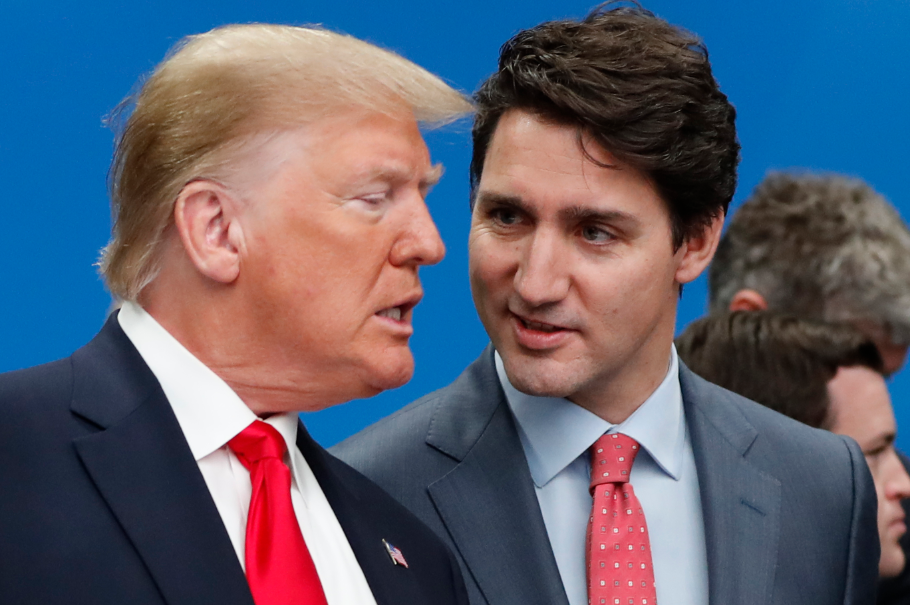
Trump mocks the United States’ northern ally
In a post just after midnight on Truth Social, Trump took aim at Canadian Prime Minister Justin Trudeau with a mocking reference, calling him “Governor Justin Trudeau of the Great State of Canada.”
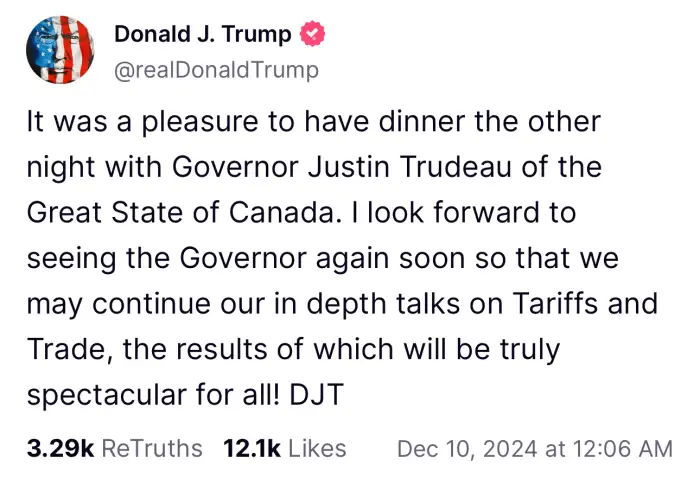
The comment, a throwback to Trump’s past suggestion that Canada might become the 51st U.S. state if they can’t handle his tariffs, is an insult to both Trudeau and Canada.
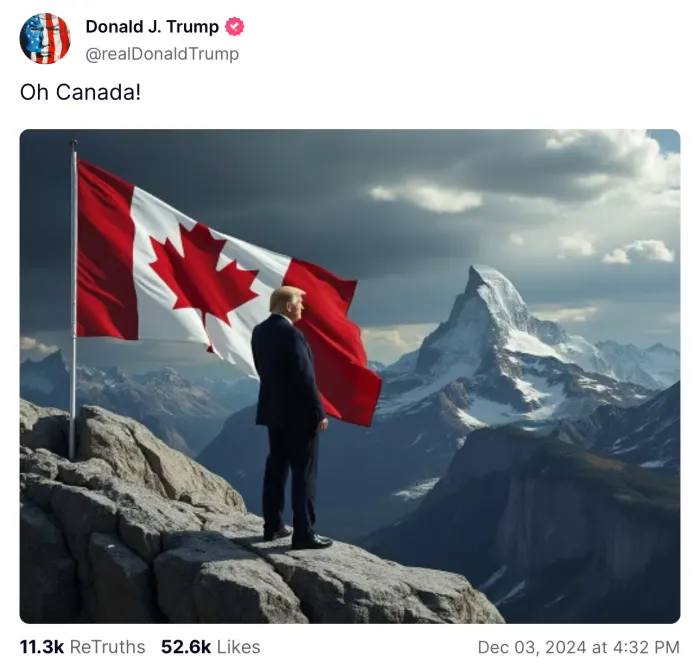
Trump recently posted an AI image of himself looking into Canada as if to annex it. Trump’s midnight post, claiming to look forward to future discussions on tariffs and trade with “Governor Trudeau,” further stoked tensions with a key ally and makes one question his diplomatic judgment.
Trump’s post undermines the United States’ relationship with Canada. Calling the Canadian leader a “Governor” belittles the sovereignty of a close neighbor and trading partner, and further feeds into the narrative of disrespect that Trump has often displayed toward foreign leaders.
The United States and Canada share deep economic, cultural, and geopolitical ties, and statements like this can jeopardize decades of cooperation. Trump is proving once again he will be an embarrassment to the United States.
-
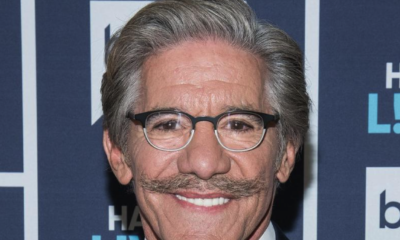
 News11 months ago
News11 months agoGeraldo Rivera Slaps Trump Supporters With A Reality Check After Biden’s Pardon
-
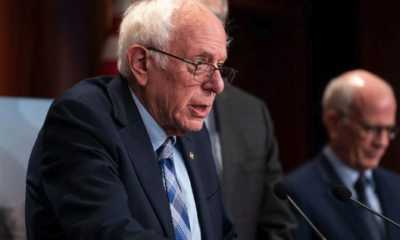
 News11 months ago
News11 months agoBernie Sanders Flips The Script And Praises Trump Picks
-
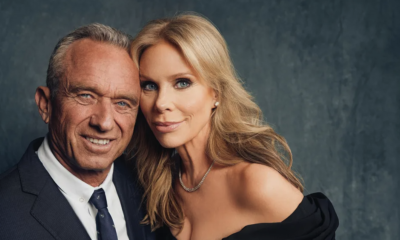
 Uncategorized11 months ago
Uncategorized11 months agoNaked RFK Jr. Makes Cameo On Wife Cheryl Hines’ Social Media
-

 News11 months ago
News11 months agoPhoto of person of interest with the mask down was the “money shot,” police commissioner says
-
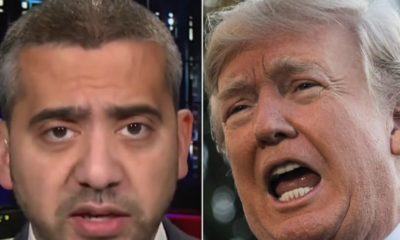
 News11 months ago
News11 months ago‘Banana Republic Stuff’: Mehdi Hasan Nails GOP Hypocrisy Over Trump’s Latest Move
-
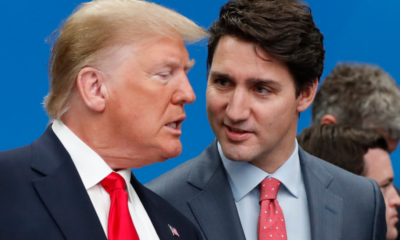
 News11 months ago
News11 months agoBREAKING: Canada just stunned Trump with brutal news after holding an “emergency meeting.” This WON’T end well for Trump…
-
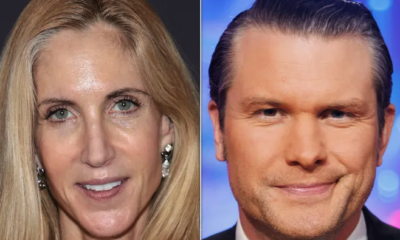
 News11 months ago
News11 months agoAnn Coulter Slams Controversial Trump Cabinet Nominee As ‘Sleazy’ Serial Adulterer
-
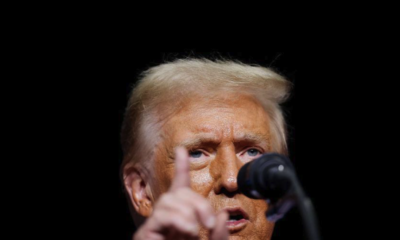
 News11 months ago
News11 months agoTrump Is Using “Unitary Executive” Theory in His Bid to Amass Supreme Power






